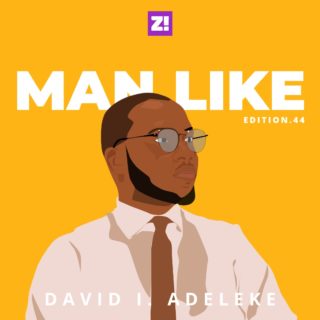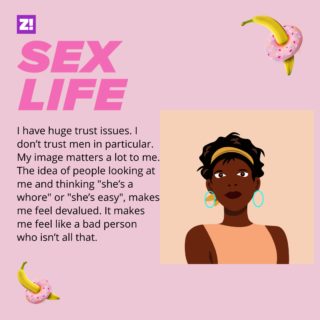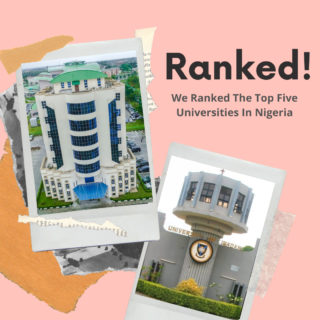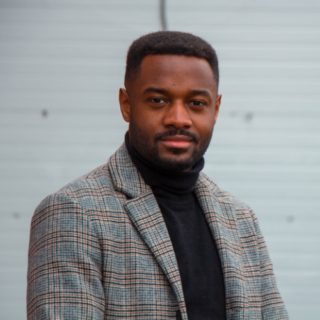Over the weekend, I saw several tweets from disabled Nigerians illustrating how inaccessible public spaces in Nigeria are. The conversations made me realize how much my privilege as an able-bodied person has made it so I was ignorant about what it must be like for people who live with disability in a country like Nigeria. To help platform the voices of people living with disability in Nigeria and to combat the ignorance many of us have about the realities of disabled people in Nigeria, I spoke with five Nigerians living with disabilities on what it is like being disabled in Nigeria.
Afam, 27.
Disability: Multiple sclerosis.
The whole of Nigeria is inaccessible. Have you tried getting a bus when you can barely walk? It is awful. I have multiple sclerosis, and that has left me with slurred speech, weakness and I can barely walk. You think Nigeria is hard? Try living in Nigeria with a disability. After I graduated from Uni, I spent a long time searching for a job. I am a copywriter and that isn’t a physical activity but the moment people saw that I was disabled. They immediately just mentally log out of any and everything that has to do with me. Even the tech startups that people say are progressive, pretty much the same thing. For over six years, I couldn’t get half a copywriting gig because people needed to physically see you for an interview and once that happens, it’s all over for me. I only got a job because a friend in the UK I met in a FaceBook forum for disabled people put in a good word for me for a remote job.
Buyin, 22.
Disability: Limb difference.
One thing very common in my life is staring. I can remember when I was conducting my entrance interview for secondary school, everybody was looking at me because we did some physical education thing. When I eventually resumed, everybody kept on saying ‘oh let me see you carry a bucket with your hand,’ it was like a mini-show. Other than that, everything was okay till one girl was enrolled in the school. I think when I was in JS3 or something and she was always running from me. It became tiring and I hated coming across her. However, it was not only her. I can remember when my cousins came back from Dublin. One of them kept on running from me. Children run from me till today. But some are inquisitive, they ask what happened to your hand and they just move on but some notorious ones start to role-play or act like they have a difficulty like me and that’s annoying. Sometimes I wish their parents could just call them to order, especially the ones that keep on asking me every time why is your hand like this. I didn’t go for my matriculation because I was overwhelmed during registration, people kept on staring at me. It was too much. So when matriculation came, I just couldn’t and that was because I wasn’t wearing my covering – I normally wear long-sleeved clothes. But for matriculation, we were to wear a black gown and my own gown didn’t have long sleeves. I just couldn’t go. I cried in my house and made my mum cry and my aunt too. I can never forget one episode in year one, where all these boys wanted to stop fine girls to “toast” them for fun. I think the group of guys were already approaching me and my friend, then one of them saw my hand and said leave her, leave her. It’s not like I was going to answer them but I still felt bad. Just last week, a man saw me on the road and shouted ‘Jesus’ and sometime last year, another one saw me and said, ‘Eeyah and this girl is fine.’
Seyi, 22.
Disability: Epilepsy.
I can’t engage in a lot of activities that I would normally enjoy or people my age should do because then I will be endangering myself and the people around me. I can’t drive, can’t cook, can’t go to certain places, can’t do certain jobs, etc. Nigeria is inaccessible, people like me get stigmatized everywhere (work, church, community). I’m sad that I will have to endure this for the rest of my life. People thrive on ignorance and are deafened to getting enlightened. They don’t even want to hear the word “Epilepsy”. No adequate care, no form of support from the government, we are constantly ignored and yet we are in millions.
Precious, 30.
Disability: Sickle Cell.
Living in Nigeria with sickle cell is kinda unbearable firstly because of the weather, I have to hydrate a lot so I don’t trigger a pain crisis but the weather makes it so difficult to stay hydrated which means frequent pain crisis. Another struggle for me is doctors not listening when I tell them I need to have a strong pain killer with me at all times. I get crises at least once a week and most times I have to manage without pain killers because there’s no provision for me to have medicines on hand. I was at a hospital in August last year with one of the most painful crises I’ve ever had and they didn’t have one nurse that could work with thin veins. I was there for over thirty minutes crying, in pain from the crisis and I also had to deal with being poked everywhere, multiple times repeatedly. It was excruciating, I was ready to leave. And to make it worse, I had to deposit ₦150,000 before they would even give me saline. There was one time I was feeling so sick that as early as 5 am the next day, I got an Uber to take me to my clinic. I saw the doctor and he literally gave me some over the counter type of meds and sent me home. Not even up to an hour after I was rushed back to the hospital. I wish medical practitioners will just shut up sometimes and listen to me. Like I’ve lived with sickle cell all my life so believe me when I say I’m about to have a pain crisis and I need to be in the hospital. I hate having to wait until it’s unbearable before getting treated but, if it doesn’t look like I’m about to die, I don’t get treated. I think it’s mostly about medical interaction for me. It should be a norm for hospitals to have one sickle cell specialist and the sickle cell centres are just money-making schemes.
Nkechi, 30.
Disability: Fibromyalgia
It has affected the way people treat me in day to day activities. First off, you see the way people look at you. I would say generally, Nigerians want to be helpful when they realize you have a disability. But then you’re treated like you don’t have much agency. They must touch you to help you. The most significant ways it affects you are mostly related to access. You almost feel invisible because most spaces aren’t planned with disabled people in mind. You wouldn’t realize how many spaces we are shut out from. Stairs, doors etc. Most banks have those security doors. A wheelchair wouldn’t be able to pass that space. Almost all spaces in Nigeria are built with only the able-bodied.
You’ll get to a door and then have to wait for an able-bodied person because the door is too heavy for you to open because you have weak muscles. Some people will try to console you by saying, ‘Nigeria isn’t built for able-bodied, not to talk of disabled people?’ Is that statement supposed to make one feel better? You’re stating that you think of us as lesser than the able-bodied and that we should expect to be treated as lesser because we are able-bodied.




